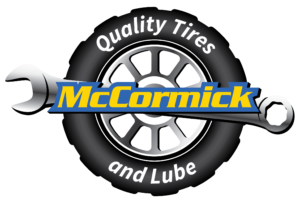Oil changes are a vital part of the regular maintenance of any vehicle. While the conventional wisdom of “every 3,000 miles” still holds some truth, modern engine technology and advancements in oil formulations have allowed for more flexible maintenance schedules.
Understanding Your Vehicle’s Specific Needs
The golden rule for determining your ideal oil change interval is to consult your vehicle’s owner’s manual. This document provides tailored recommendations based on your specific make, model, and engine type. Factors like driving conditions, fuel type, and local climate can significantly influence the frequency of oil changes.
The Impact of Fort Collins’ Unique Climate
Fort Collins’ diverse climate, with its hot summers and cold winters, can put additional stress on your vehicle’s engine. Extreme temperature fluctuations can accelerate oil degradation, leading to increased wear and tear on internal components. Therefore, it’s essential to consider these factors when planning your oil change schedule.
Common Misconceptions Debunked
- The 3,000-Mile Myth: While this guideline was once widely accepted, modern synthetic oils and advanced engine designs often allow for longer intervals. Synthetic oils can last for up to 5,000 miles without needing to be changed.
- The “Wait for the Light” Approach: Relying solely on the oil change light can lead to delayed maintenance, potentially compromising your engine’s health.
- Neglecting Oil Filters: The oil filter is a crucial component that traps contaminants and debris. It’s equally important to replace it during each oil change.
Signs That Your Oil Needs Changing
Even with a well-maintained schedule, it’s essential to stay attuned to your vehicle’s behavior. Here are some warning signs that indicate the need for an oil change:
- Dark, Sludgy Oil: Healthy oil should be relatively clear or slightly amber. Dark, thick oil is a sign of excessive contaminants.
- Metallic Noise: Unusual engine noises, such as knocking or tapping, may indicate insufficient lubrication.
- Reduced Fuel Efficiency: Dirty oil can hinder engine performance and lead to decreased fuel economy.
- Oil Pressure Warning Light: If this light illuminates, it’s a critical warning that your engine is not receiving adequate lubrication.
Choosing the Right Oil for Your Vehicle
The type of oil you use is another crucial factor in maintaining engine health. Consult your owner’s manual to determine the recommended oil viscosity and type (conventional, synthetic blend, or full synthetic). Factors such as your vehicle’s age, mileage, and driving conditions can influence your choice.
The Benefits of Regular Oil Changes
Regular oil changes offer a multitude of benefits for your vehicle:
- Prolonged Engine Life: Clean oil reduces friction and wear on internal components, extending the life of your engine.
- Improved Fuel Efficiency: Well-lubricated engines operate more efficiently, saving you money at the pump.
- Enhanced Performance: Clean oil ensures optimal engine performance, resulting in smoother acceleration and better overall responsiveness.
- Reduced Emissions: Regular oil changes help maintain a healthy engine, leading to fewer harmful emissions.
- Peace of Mind: Knowing that your vehicle’s engine is well-maintained provides a sense of security and reliability.
How often should you have an oil change?
In conclusion, the frequency of oil changes for your vehicle in Fort Collins depends on various factors, including your driving habits, climate conditions, and the specific recommendations in your owner’s manual. By staying informed and attentive to your vehicle’s needs, you can ensure optimal performance and longevity. Remember, a well-maintained engine is a reliable engine, and regular oil changes are the cornerstone of preventative maintenance.
If you’re looking to have your oil changed or other maintenance performed, contact McCormick Quality Tires and Lube today.






